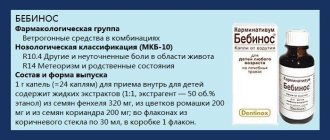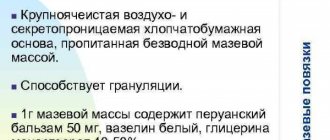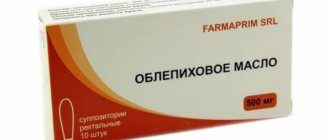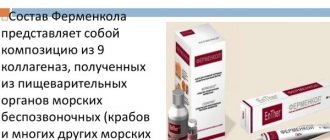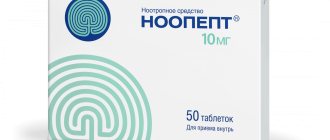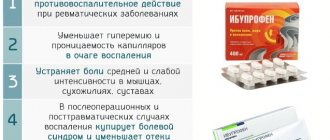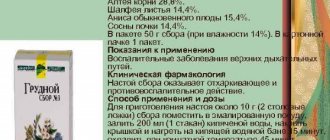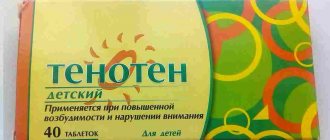When sending their child to kindergarten, parents worry about how he will be able to adapt to society, although he is still growing up, establish contact with teachers and other children, and also resist all kinds of infections. At such a tender age, a child’s immune system can encounter all sorts of diseases, and it is important to promptly help it effectively fight them.
Thus, among others, hemophilus influenzae infection poses a potential threat to the child’s body. To protect against it, the Act-HIB vaccine is used. The purpose of vaccination is to create the desired reaction to Haemophilus influenzae from the immune system. Today, these preventive measures are widely used throughout the world.
What are Hib infections: deciphering the diagnosis
Hib infections are a type of infectious disease caused by Haemophilus influenzae type b. This pathogen is one of the most dangerous.
It is Hib infections that cause the development of such ailments:
- purulent meningitis;
- engilottitis;
- sepsis;
- pneumonia;
- otitis;
- arthritis;
- many other types of diseases.
Some of the diseases mentioned above can be fatal or cause a number of dangerous complications. Therefore, the patient may require significant protection against disease in the form of vaccination.
List of sources
- Ilyina S.V. Hemophilic infection: textbook. allowance / S.V. Ilyina, V.T. V.T. Kiklevich // GBOU VPO IGMU Ministry of Health. – Irkutsk: IGMU, 2013. – 61 p.
- Pakhomov D.V., Snegova N.F., Kostinov M.P. Vaccination of Haemophilus influenzae b infection in children from HIV-infected mothers and in HIV-infected children // Children's infections. – 2005. – T. 4 – No. 2. – P. 60–64.
- Sepsis caused by H. Influenzae/ Rossina A.L., Chuelov S.B., Korsunsky A.A. and others//Children's infections. – 2021. – T. 17, No. 2.
- Kharchenko G.A., Kimirilova O.G. Hemophilus influenzae infection in children with sporadic morbidity: clinical cases with different (favorable or fatal) outcomes. Issues of modern pediatrics. 2017; 16(3): 241-245.
Composition and pharmacological action of the Act-HIB vaccine
The Act-HIB vaccine contains two main components: Haemophilus influenzae type b polysaccharide and conjugated tetanus protein . The medicine also contains excipients: trometamol and sucrose.
The main dose of the vaccine is produced in the form of a homogeneous white lyophilisate. To dissolve it, use a 0.4% sodium chloride solution, which is also present in the kit. The medicinal product does not contain living organisms that can cause the development of the disease.
Act-HIB vaccine
The vaccine contains only polysaccharides that are similar in structure to pathogenic microbes. Therefore, after the drug is introduced into the body, the disease does not develop. After entering the body, the vaccine composition causes a persistent specific reaction of the immune system to hemophilus influenzae type b infection.
This type of vaccine does not produce an immune response to other types of pathogens. Therefore, if you need to be vaccinated against other diseases at the same time, be sure to consult your doctor before undergoing the procedure.
Pathogenesis
The causative agent of the disease is Haemophilus influenzae (Pfeiffer bacillus). The portal for infection is the nasopharyngeal mucosa. It is transmitted mainly by airborne droplets, but very often among children under two years of age there is contact transmission of the infection.
At the moment, the pathogenesis is not well understood. The stick, entering the gate of infection, can remain there for quite a long time as a latent asymptomatic infection. This can go on for a relatively long time. But sometimes, when the immune system , the latent form becomes manifest over time. The likelihood of such a transition increases if the process is accompanied by a viral infection.
Gradually, the infection spreads, provoking the development of pathological processes - sinusitis , bronchitis , otitis , pneumonia , etc. Hematogenous dissemination , affecting joints, etc. It occurs like sepsis . Strains of Haemophilus influenzae that do not have a capsule can only affect the mucous membranes. Systemic diseases can only be caused by pathogens that have capsules. As a rule (according to statistics, in 95%) this is Hemophilus influenzae type b. The pathogenicity of this type of pathogen is more pronounced, since the capsule suppresses phagocytosis. Those who survive the disease subsequently develop strong immunity.
Instructions for use of the Act-HIB vaccine
Like any other medicine, the Act-HIB vaccine has certain requirements for use. Compliance with them is the key to preserving the vaccine’s basic properties and ensuring that the patient receives the desired medicinal effect.
Vaccination scheme
The drug can be administered according to three schemes:
- Children aged 2 to 6 months receive 3 vaccinations with an interval of 1-2 months. 12 months after the last injection it is necessary to vaccinate again. Children of this age category are given 1 dose (0.5 ml of the drug);
- Children in the age category from 6 to 2 months are given 2 injections with a break of 1-2 months. 12 months after the second vaccination, revaccination is carried out. Patients are administered 1 dose of the drug (0.5 ml);
- Children from 1 year to 5 years are administered one dose of the drug (0.5 ml).
Before using the vaccination composition, it is diluted with the solvent present in the kit. After mixing the components, shake the container until a homogeneous composition is obtained.
Dosing principles and site of administration
To achieve the desired effect, patients of any age are given 1 dose of the drug (0.5 ml of medication).
The same dosage is used for revaccination. The medicine can be injected into different areas.
For patients under 2 years of age, the drug is administered into the anterolateral thigh. If the child is over 2 years old, the deltoid muscle area is used for administration.
Causes
The source of infection, as well as its reservoir, is exclusively human. The pathogen is transmitted by airborne droplets. The period of asymptomatic carriage can last up to several months. Most often, the disease is diagnosed in late winter and early spring.
There are several risk groups that have a higher risk of contracting the pathogen:
- Children under 2 years old, elderly people.
- Children who attend kindergarten and other preschool institutions.
- Formula-fed babies.
- People living in difficult social conditions.
- Patients with immunodeficiency .
- People suffering from alcoholism .
- Patients with sickle cell anemia , lymphogranulomatosis .
- Children and adults of non-European races.
- Those who have had their spleen removed.
- Elderly people living in boarding schools and nursing homes.
- Patients taking systemic glucocorticosteroids for a long time.
- Patients with cancer.
Contraindications for use
It is not always possible to use the Act-HIB vaccination composition.
Contraindications for which vaccination is strictly prohibited include:
- allergic reaction to vaccine components;
- acute course of infectious diseases;
- high temperature.
To exclude the procedure from being carried out in the presence of a condition that is a contraindication to vaccination, the doctor must conduct a preliminary examination of the patient.
Indications for vaccination
Doctors recommend vaccination in the first year of life. The vaccine is given starting from the third month.
Pediatricians recommend giving the injection to those children who are fed low-weight formula milk. The risk group for bacillus infection includes infants from low-income or large families. They vaccinate children who will soon go to kindergarten or have disorders of the immune system. It is also recommended to vaccinate children with blood pathologies or after resection of the spleen.
Contraindications of the drug
The instructions for use of Act-Hib state that injections should not be given if the patient’s chronic disease has worsened or a high temperature has risen. It is prohibited to vaccinate if there is an infection in the body or if there was an allergy during previous vaccinations. You should not vaccinate if you are prone to allergies or sensitivity to the components of the drug.
Doctors recommend that if the patient has been sick, the vaccine should be administered no earlier than 2–4 weeks after he has recovered. If the disease is not severe, then you can get vaccinated when the temperature drops to 36.6 degrees.
Popular Immunize children against hepatitis A with the Algavac vaccine
Side effects and complications
Act-HIB vaccination is usually well tolerated by patients. In some cases, there may be an increase in temperature up to 37.5 C, thickening, redness or itching of the skin at the injection site, nervousness or drowsiness.
But the listed deviations are not among the dangerous pathologies and do not always occur. They usually go away within 1 or 2 days.
In some cases, significant complications may develop: fever up to 39 C or more, headaches and other serious manifestations.
If symptoms continue to worsen, you should urgently seek help from a doctor.
Subtleties of application
The drug is not injected into a vein, but only subcutaneously or intramuscularly. During the injection, medical personnel must ensure that the needle does not fall into the bed of the vessel. This remedy does not protect against diseases caused by other serotypes or meningitis. Doctors do not recommend replacing this vaccine by eliminating the tetanus vaccine.
The formation of an immune response may be difficult if the child is diagnosed with an immunodeficiency condition or has received suppressive treatment. Infants younger than four months may experience leg swelling for the first six hours after the injection. This symptom is accompanied by a change in skin tone, cyanosis, and a local increase in temperature. All symptoms disappear within 24 hours after vaccination.
The vaccine is for children, so the manufacturer did not consider it necessary to indicate the subtleties of use and the possible harm of the medicine for pregnant women, nursing mothers, and elderly patients.
Interaction with other drugs
Act-HIB can be used with other medications that are included in the national vaccination schedule. But medical personnel must remember that mixing medications in one syringe is prohibited and vaccines are placed in different parts of the body.
Popular Vaccine from Italy against influenza Agrippal with description
Before vaccination, parents must inform the attending physician about all medications the child has taken, including if these medications were sold without a prescription. The medicine is available in pharmacies only by prescription and cannot be frozen. Optimal storage location: cool environment with a temperature of 2–8 degrees. The place must be inaccessible to children. Under such conditions, the vaccine can be stored for up to 36 months.
Price and analogues of conjugate vaccine
The cost of the Act-HIB vaccine is about 400 rubles. However, this indicator may not correspond to this figure in different pharmacies and regions of the Russian Federation.
If for any reason it was not possible to purchase Act-HIB, you can always use analogues of the drug. Synonyms of the drug include names of vaccine solutions such as Kimi-Hib and Hiberix. To ensure that a similar drug does not cause complications, the choice of a substitute should be made by a doctor.
Self-use of the injection composition may be fraught with consequences.
Diet
Diet 13 table
- Efficacy: therapeutic effect after 4 days
- Time frame: no more than 2 weeks
- Cost of products: 1500-1600 rubles per week
For hemophilus influenzae infection, it is recommended to adhere to the principles of the “Table No. 13” diet.
The diet should include the following products:
- Low-fat soups with fish and meat, soups with cereals.
- Wheat crackers.
- Poultry, veal.
- Fish.
- Eggs.
- Lactic acid products.
- Porridge from buckwheat, rice, semolina.
- Vegetables fruits.
- Honey, jams, marmalade, marshmallows.
The following foods should not be consumed:
- Fatty broths, soups, borscht.
- Fresh baked goods, muffins.
- Fat meat.
- Sausages, semi-finished products.
- Milk, sour cream.
- Cabbage, radishes, onions, garlic.
- Mushrooms, legumes.
- Spices, smoked meats.
- Confectionery.
- Alcohol.
- Strong coffee.
Act-HIB or Hiberix: which is better to use for hemophilus influenzae infection?
There is no specific answer to this question. The choice of drug for vaccination will depend on the patient's age, health status, and the need for vaccination against additional infections.
Hiberix vaccine
In any case, the choice of drug should be made by a doctor. If you don’t like the vaccine they offer you at the clinic, you can always buy any analogue and get vaccinated with it.
But in any case, when using a synonym, do not forget to consult your doctor. Perhaps the doctor will help you choose a vaccine that is more affordable in cost and composition.
General information
The concept of “ hemophilus influenzae infection ” ( Hib infection ) unites acute infectious diseases that develop under the influence of hemophilus influenzae.
With this pathology, as a rule, the respiratory organs and central nervous system are affected, and purulent foci can develop in various organs. Haemophilus influenzae was first isolated by Richard Pfeiffer during the influenza pandemic in 1889. Then it was mistakenly mistaken for the etiological cause of influenza and given the name “Pfeiffer’s bacillus.” But later scientists determined that erythrocyte factors are necessary for the growth of the pathogen. As a result, in 1920 the pathogen was renamed Haemophilus (translated as “loving blood”). Later, it was discovered that influenza is of a viral nature, but the name influenzae was still used.
Over time, it has been proven that Haemophilus influenzae infection depends on age. This disease is most common among children. The disease is especially dangerous for children. After all, it can occur without pronounced symptoms, and later lead to the development of serious complications - meningitis , epiglottitis , etc. About a third of meningitis in childhood is caused by Haemophilus influenzae. As a rule, children under 5 years of age, both boys and girls, are most often affected. According to statistics, approximately 3 million cases of the disease are recorded in the world every year, and up to 500 thousand cases are fatal.
This article will discuss how the disease progresses and how you can protect children and adults from Hib infection.
Reviews about the effectiveness of vaccination
There are a small number of reviews about the Act-HIB vaccine collected online, but we found some of them and presented them in our article:
- Olga, 34 years old . My son went to kindergarten and started getting sick very often. The doctor recommended vaccinating the child against hemophilus influenzae infections with the Act-HIB vaccine. My son tolerated the vaccination well. Only in the evening the temperature rose slightly (up to 37.3). But in the morning he was already like a cucumber. Since then, my son hasn’t stopped getting sick at all, but all sorts of ARVIs have begun to happen much less frequently for us. Therefore, I am very pleased;
- Maria, 45 years old. The doctor suggested vaccinating my granddaughter with the Act-HIB vaccine because she often gets sick. But we refused because it only protects against one type of meningitis. That is, it turns out that if the causative agent is not Hemophilus influenzae, then there will be no point in vaccination. Together with another doctor, we will try to choose a vaccine with a more extensive effect in order to have protection against a larger number of diverse infections, and not from one type of pathogen.
Tests and diagnostics
In the diagnostic process, the doctor takes into account a number of factors that contribute to infection with Haemophilus influenzae, as well as the age of the patient. An examination and interview is carried out to determine clinical manifestations.
To confirm infection with Haemophilus influenzae, laboratory testing of samples of blood, pus, sputum, cerebrospinal fluid, and mucosal smears is carried out.
In the process of determining hemophilus influenzae infection, the following laboratory diagnostic methods are used:
- bacteriological culture, bacterioscopy;
- serological diagnostics;
- enzyme immunoassays;
- PCR.
A number of other studies are also being conducted.
- General and biochemical blood tests are performed.
- To determine sensitivity to antibiotics, an antibiogram is performed.
- of epiglottitis appear, laryngoscopy is practiced to determine the condition of the respiratory tract.
- To determine the condition of the lungs, a chest x-ray or CT scan of the lungs is performed.
- If there are signs of meningitis, a lumbar puncture is performed.
Sometimes it is advisable to conduct other studies.
Preparing for vaccination
To avoid complications, you need to prepare for the administration of the Haemophilus influenzae vaccine, like any other. To do this, you need to talk with your doctor or pediatrician and clarify all the necessary information about the properties and side effects of the drug. A few days before the intended vaccination you should:
- conduct a full examination by a doctor;
- protect the baby from contact with sick people;
- If a child is fed breast milk, the mother should not introduce new foods into her diet - this is fraught with various allergic reactions.
Each person's body reacts to vaccination differently. To alleviate or avoid an unexpected reaction, it is recommended:
- after vaccination, remain under medical supervision for half an hour;
- take daily walks, but only in areas where there are no large crowds of people, this is the only way to prevent infection;
- For the first three days, you can bathe your child in the shower for no more than 3 minutes;
- exclude the introduction of new foods into the diet of the baby or mother.
The Haemophilus influenzae vaccine can cause allergies to individual components, so for preventive purposes you need to take drugs such as Suprastin or Zodak (on the recommendation of a doctor).
